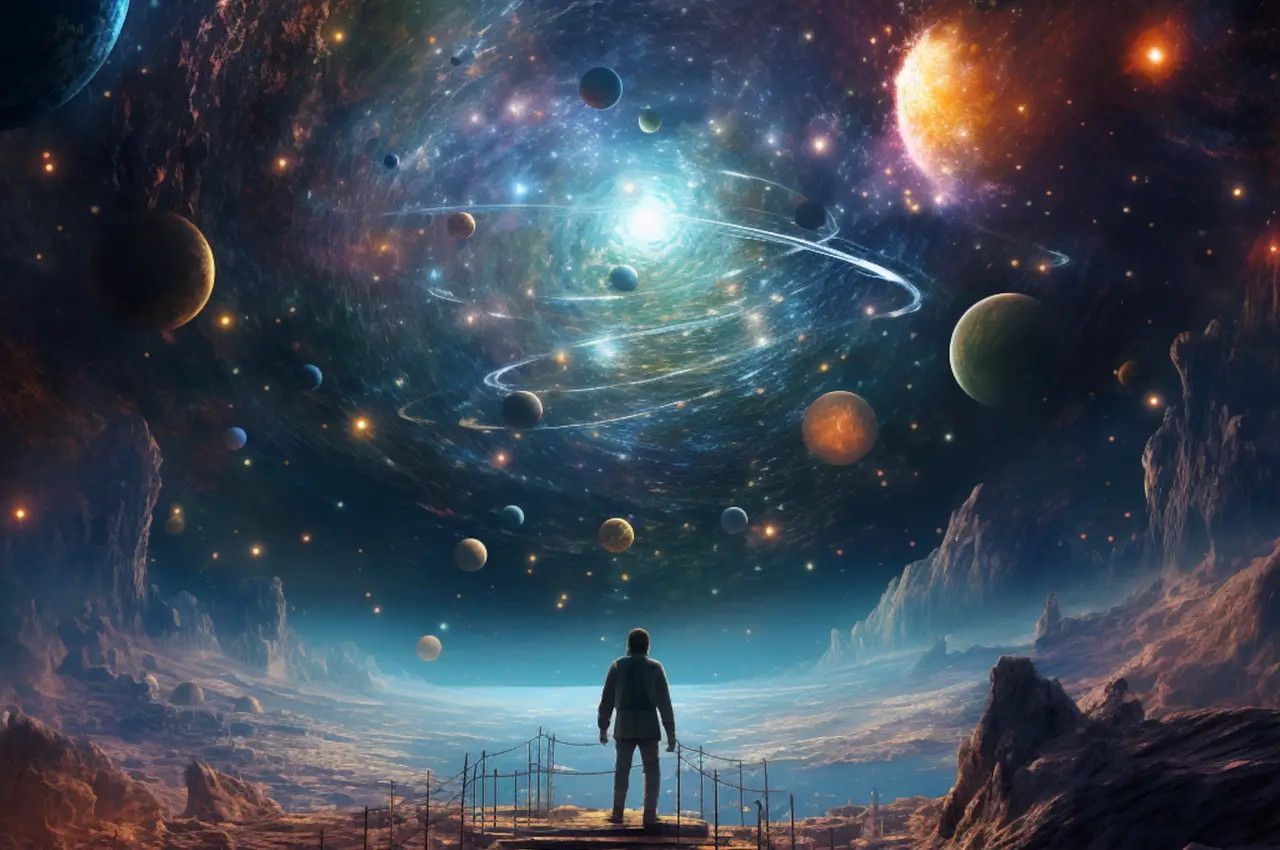Science and spirituality often appear as opposing forces, yet a closer look reveals they can beautifully complement each other. While science seeks to understand the world through observation, measurement, and analysis, spirituality explores the deeper, often intangible aspects of existence, such as meaning, purpose, and connection to something greater. Together, they offer a holistic understanding of life that transcends the limits of either discipline alone.
The Common Ground Between Science and Spirituality
At first glance, science and spirituality seem to operate in different domains. Science relies on empirical evidence, logic, and reproducible experiments. Spirituality, on the other hand, delves into personal experiences, faith, and the unobservable. However, both seek truth, understanding, and a sense of order in the universe.
Take meditation as an example. Traditionally a spiritual practice, meditation has been embraced by the scientific community for its proven benefits. Research shows that regular meditation can reduce stress, improve concentration, and even alter brain function. This convergence of spiritual practice and scientific validation demonstrates how the two fields can complement each other.
Another example lies in the study of consciousness. Scientists have long been fascinated by the nature of consciousness, a topic also central to many spiritual traditions. Both science and spirituality question the nature of reality, the self, and our place in the universe, albeit through different methodologies. When these perspectives intersect, they offer profound insights into the human experience.
How Science Validates Spiritual Practices
Modern science has begun to explore and, in some cases, validate ancient spiritual practices. For example, mindfulness, a practice rooted in Buddhism, has become a widely accepted tool in psychology. Numerous studies have shown that mindfulness can help manage anxiety, depression, and chronic pain. This scientific endorsement not only brings credibility to mindfulness but also makes it accessible to those who might be skeptical of its spiritual origins.
Similarly, the practice of gratitude, often emphasized in spiritual teachings, has been shown to improve mental and physical health. Research indicates that regularly practicing gratitude can lead to better sleep, reduced inflammation, and increased resilience. The scientific validation of these spiritual practices bridges the gap between the two fields, allowing individuals to benefit from both perspectives.
The Role of Quantum Physics in Bridging Science and Spirituality
Quantum physics is one of the most intriguing areas where science and spirituality meet. The bizarre nature of quantum mechanics, where particles can exist in multiple states at once and be entangled across vast distances, challenges our conventional understanding of reality. These phenomena echo many spiritual concepts, such as interconnectedness and the illusion of separateness.
Some physicists and spiritual thinkers suggest that quantum physics could offer explanations for spiritual experiences. The idea that consciousness might play a role in shaping reality aligns with certain spiritual teachings that emphasize the power of the mind and intention. While these ideas are still highly speculative, they open up exciting possibilities for future exploration.
Personal Experiences and the Science of Spirituality
Personal experiences often lie at the heart of spirituality. People describe moments of deep connection, awe, or transcendence that science struggles to explain fully. However, neuroscience is beginning to shed light on these experiences. Studies on brain activity during meditation, prayer, or moments of intense focus reveal that certain brain states correspond to spiritual experiences.
One example is the phenomenon known as “flow,” a state of complete immersion in an activity. During flow, individuals often report a loss of self-consciousness, a sense of unity with their surroundings, and heightened creativity. Neuroscientists have found that flow states involve specific patterns of brain activity, suggesting a scientific basis for these deeply spiritual experiences.
Integrating Science and Spirituality in Daily Life
Understanding the intersection of science and spirituality can enrich our lives. By integrating the two, we can approach life’s challenges with both rationality and a sense of deeper meaning. For instance, when facing stress, one might use scientifically backed techniques like mindfulness meditation while also drawing on spiritual beliefs for strength and comfort.
Consider the practice of journaling. From a scientific perspective, journaling helps organize thoughts, reduce stress, and improve mental clarity. Spiritually, it can be a tool for self-reflection, connecting with one’s inner voice, and manifesting intentions. By combining these perspectives, journaling becomes a powerful practice for personal growth.
The Future of Science and Spirituality
As we move forward, the relationship between science and spirituality will likely continue to evolve. Advances in fields like neuroscience, psychology, and quantum physics may provide new insights into spiritual experiences and practices. Conversely, spiritual traditions may offer valuable perspectives that guide scientific inquiry into the mysteries of consciousness and existence.
For example, ongoing research into the effects of psychedelics on consciousness is uncovering fascinating connections between brain chemistry and spiritual experiences. Some researchers believe that psychedelics could help treat mental health conditions by facilitating profound spiritual experiences that lead to lasting changes in perception and behavior.
At the same time, spirituality can guide ethical considerations in scientific research. Questions about the moral implications of artificial intelligence, genetic engineering, and other technologies often touch on spiritual values, such as the sanctity of life, compassion, and the interconnectedness of all beings.
A Call to Explore Both Worlds
The intersection of science and spirituality invites us to explore the world with an open mind and heart. Rather than seeing them as opposing forces, we can embrace the strengths of both to gain a more comprehensive understanding of ourselves and the universe. By doing so, we open ourselves to a richer, more fulfilling life.
Imagine standing at the edge of a vast ocean. Science offers us the tools to measure the waves, understand the currents, and predict the tides. Spirituality, on the other hand, invites us to feel the ocean’s depth, listen to its whispers, and connect with its endless mystery. Together, they guide us on a journey of discovery that is as much about the external world as it is about our inner selves.
Embrace the Union of Science and Spirituality
In today’s world, the boundary between science and spirituality is becoming increasingly porous. This blending of perspectives allows us to approach life’s mysteries with both analytical rigor and spiritual insight. Whether it’s through the practice of mindfulness, the exploration of consciousness, or the study of quantum physics, the intersection of science and spirituality offers a path to deeper understanding and personal growth.
As we continue to explore this intersection, let us do so with curiosity, openness, and a willingness to embrace the unknown. The union of science and spirituality not only enriches our understanding of the world but also enhances our journey toward self-discovery and fulfillment.





